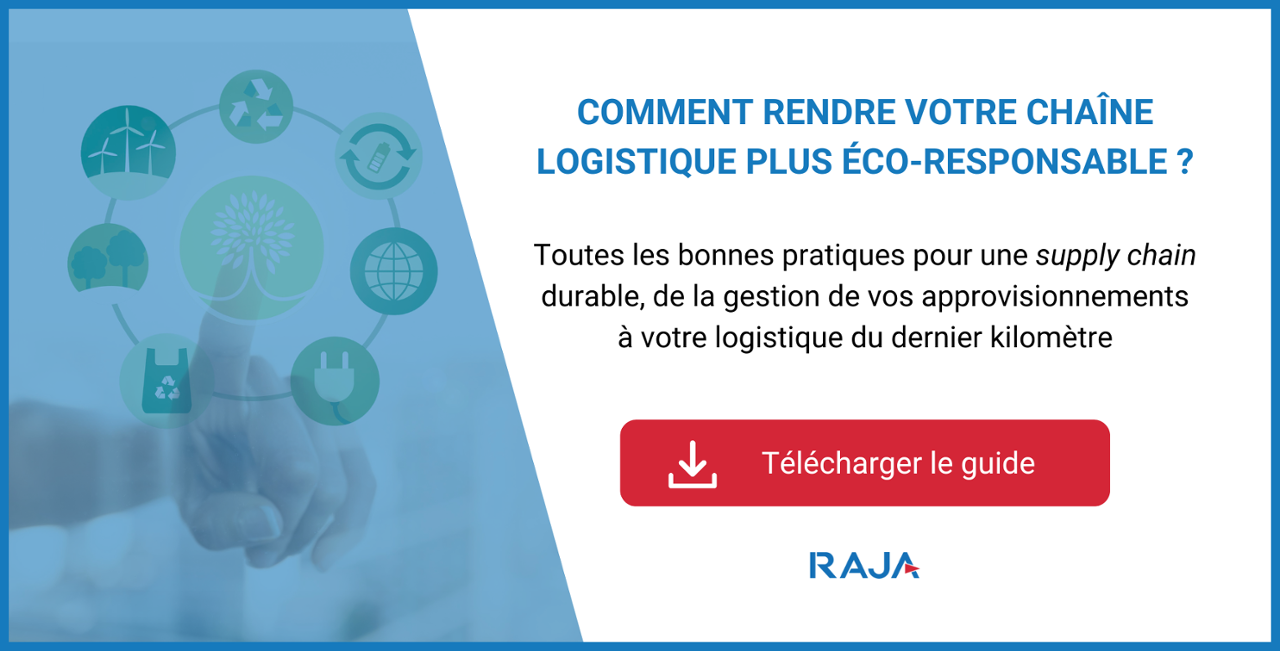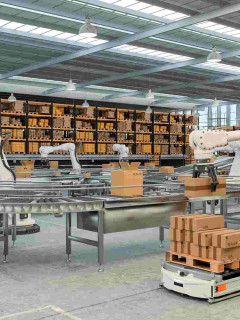There are many supply chain professions. Each of them has its own specificities in terms of missions, but also salaries and possible career developments. It is quite legitimate to ask what salary you can expect to earn according to your skills and your position.
They can be different depending on where you live, how long you’ve been working for the company, or what kind of company you work for. Nevertheless, here is an overview of the salaries for supply chain jobs, as well asthe possible developments in your professional life .
The supply chain manager
What does a supply manager do?
Themission of the supply chain manager is tocontrol the flows between the various players in the logistics chain. He/she supervises the logistics, transport, import/export, customer service and even purchasing sections. His role is to coordinate these different activitiesThe role is to coordinate these different activities, ensuring that costs are optimised within the warehouse and that deadlines are met. It is therefore a complete job, which explains why it is so desirable.
What is the salary of a supply chain manager?
The salary of a supply chain manager is on average 60,000 euros gross per year. With years of experience, they can expect to earn up to 85,000 euros. Most of the time, the supply chain manager evolves towards a position of supply chain director. He or she can become asite manager if he or she has significant experience in production management.
What diploma do you need to be a supply chain manager?
To become a supply chain manager, several training courses are possible:
- A higher education degree (Bac+4 or Bac+5), such as a business or engineering school.
- Higher education with 3 years of higher education, specialising in management, production, transport/logistics or supply chain. In particular, there is a professional degree in logistics process management.
The S&OP manager
What does an S&OP manager do?
The Sales & Operation Planner works together with the logistics department and the general management of the warehouse in order todraw up the industrial and commercial plan (ICP). His/her task is tocompose a plan that leads to a balance between sales, financial objectives and the company’s capacities. The S&OP Manager is therefore required to draw up sales forecasts and ensure that they are properly executed. He/she has a key role within the supply chain.
What is the salary of an S&OP manager?
Theaverage salary is around 55,000 euros gross per year. The S&OP manager can move up within the company. He or she may become asupply chain manager, or move to a position that is more commercially oriented .
What diploma do you need to be an S&OP manager?
To be an S&OP manager, you need to have a 5-year degree from a business or engineering school. A specialisation in logistics, transport, supply chain, production management or industrial systems engineering is a real advantage for this position.
The procurement manager
What does a procurement manager do?
The procurement manager uses sales forecasts to coordinate the flow of goods and manage product stocks. He/she ensures that the plan drawn up is applied in order tooptimising the company’s costs and profits. He also collaborates with the buyers in the negotiation process with suppliers. Thus, he/she can play a role in the search for new suppliers in order to optimise the quality/price ratio.
The procurement manager ensures that thequantities ordered and received are consistent and that deadlines are met. Finally, he/she supervises the staff in charge of the flow of goods, in particular by organising their schedule.
What is the salary of a procurement manager?
In France, the average salary for this position is 45,000 euros gross per year. The procurement manager has several possibilities for advancement after gaining experience. He or she can apply for a position aslogistics manager, transport manager or logistics project manager.
What diploma do you need to be a procurement manager?
To be a procurement manager, you need a 5-year degree. This can be a business school degree or an engineering degree with a specialisation in logistics, electronics, mechanics, industrial logistics, organisation and production management, etc.
It is also possible to become a procurement manager with a master’s degree in production management, logistics, purchasing, etc.
The head of planning / demand planner
What does a planning manager / demand planner do
Within the company, the demand planner’s mission is toorganise the flow of production and orders. His/her role is tosupply the products according to the sales forecasts .To do this, they plan and monitor production. He/she has a strategic role and works in collaboration with various departments (marketing, sales, finance, production, etc.) to optimise production processes, stocks, lead times and reduce supply chain costs.
What is the salary of a planning manager / demand planner?
The planning manager is paid, on average, 45,000 euros gross per year, like other supply chain managers. The experience acquired during their career allows them to move on to other positions in the supply chain or logistics. For example, they can become logistics or supply chain managers, or apply for a position in marketing.
What diploma do you need to be a planning manager / demand planner?
Employers often ask for a minimum of two years of higher education. Training in production management and logistics is strongly recommended. Pursuit of a professional degree is an advantage.
The supply chain
What does a supply chain coordinator do?
The supply chain coordinator is responsible for setting upprocedures to organise and optimise the supply chain. He/she has a key role in the management of incoming and outgoing product flows. He/she will act on the activities of supply, reception of goods, storage, and forwarding. The supply chain coordinator must have a global vision of these activities in order to be able to manage the company’s logistics flows.
What is the salary of a supply chain coordinator?
At the beginning of their career, supply chain coordinators earn an average of €30,000 gross per year. With experience, their salary can reach between €35,000 and €40,000, or even more, depending on the size of the company . There are many career opportunities, with the supply chain coordinator being eligible for the position of supply chain manager or director of logistics services. He or she can also join the sales administration professions.
What diploma do you need to be a supply chain coordinator?
To become a supply chain coordinator, several training courses are possible:
- Higher education with a degree in management, logistics or procurement.
- Higher education with a BTS or a DUT. There is also a BTS in transport and logistics services and a DUT in logistics and transport management.
The supply chain analyst
What does a supply chain analyst do?
The supply chain analyst plays an essential role in supply chain strategy. His or her tasks consist of collecting data, grouping them together in order to produce reports, and then analysing them using performance indicators, for example. Ingeneral, these analyses are used to point out possible shortcomings with the aim of finding improvements within the various stages of the supply chain.
What is the salary of a supply chain analyst?
The salary for a supply chain analyst is around 35,000 euros gross per year. As with other positions, the salary can be higher or lower depending on the years of experience and the size of the company. Thanks to their global vision of the supply chain, supply chain analysts can progress to other positions of responsibility. In particular, he or she can move towards the position ofsupply chain manager, purchasing manager or stock management manager.
What diploma do you need to be a supply chain analyst?
A 2 or 3 year degree (BTS or DUT specialising in logistics) is sometimes sufficient to become a supply chain analyst. However, most recruiters are looking for graduates with a degree from an engineering school or a master’s degree specialising in logistics or transport engineering.
There are many prospects for development in the supply chain field. Salaries are relatively high, especially when you reach positions of responsibility such as supply chain manager or demand planner. This is a buoyant sector with many advantages.
There are also many jobs in transport, logistics andwarehousing. Do not hesitate to take a look at our recruitment pageThere are many vacancies available.
















